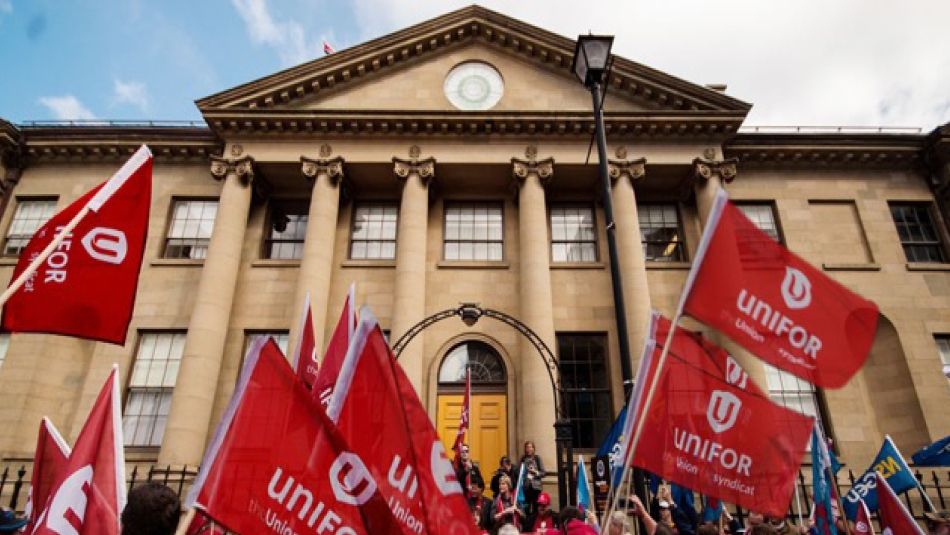
Share
Unions representing thousands of administrative professionals working in the health care system throughout Nova Scotia have spent six weeks trying to get bargaining dates from the employers and government, but they refuse to come to the table.
These hard-working administrative professionals now have a contract that expired almost three years ago. The employer and government have offered these workers a deal that amounts to a wage decrease, while other groups of health care workers have been offered much more.
“Premier Houston promised to fix health care,” said Bev Strachan, President of CUPE Local 8920. “But he’s ignoring thousands of folks who are making as little as $20 per hour – leaving them among the lowest paid health care workers in Atlantic Canada – and are integral to keeping our health care system functioning.”
“The Premier made it clear in the past that he doesn’t think low wage work is real work, but these low wage admin workers are a critical part of our health care system,” said NSGEU President Sandra Mullen. “It's time to get back to the table.”
Nova Scotia Health and IWK Health Centre are hiding behind legislation passed by the Liberal government, rather than negotiating a fair feal with thousands of administrative professionals who work in our health care system. And Houston’s government is letting them do it.
“The employers have used every excuse in the book to delay bargaining and now, they’re using essential services legislation to keep administrative professionals from exercising their right to strike,” said Strachan.
More than 5,000 administrative professionals working for the NSH and IWK – represented by CUPE, NSGEU and Unifor who bargain together in the Council of Unions – have been trying to conclude a fair collective agreement since October 2022. Members rejected a tentative agreement brought forward in April 2023, then gave the unions a strong strike mandate in June. Before legal strike action can take place, the parties must conclude an essential services staffing plan, as per the Health Authorities Act, which was passed despite much protest from the union members affected by this legislation.
“As anticipated, these employers are now exploiting this legislation to try and prevent strike action altogether, and moreover, to diminish the members’ right to hold an effective strike,” said Susan Gill, Unifor National Representative. “The government is effectively sitting on three years of back pay that belongs in workers’ pockets.”
There are more than 5,000 administrative professionals – approximately 85 per cent of whom are women – working in hospitals and community care settings throughout Nova Scotia, performing critical tasks. They are the first point of contact with patients; manage registrations; control the switchboard and communications; ensure test labels are accurate; assign beds; share lab results with clinical staff; book appointments, transfers and admissions; order and receive supplies; manage payroll; and much more.
For more information, contact:
Karen MacKenzie, CUPE National Representative, Deputy Lead Negotiator, 902-890-0840
Holly Fraughton, NSGEU Communications Officer, 902-471-178, @email
Shelley Amyotte, Unifor National Communications Representativ, 902-717-749, @email
Taylor Johnston, CUPE Atlantic Communications Representative, @email


